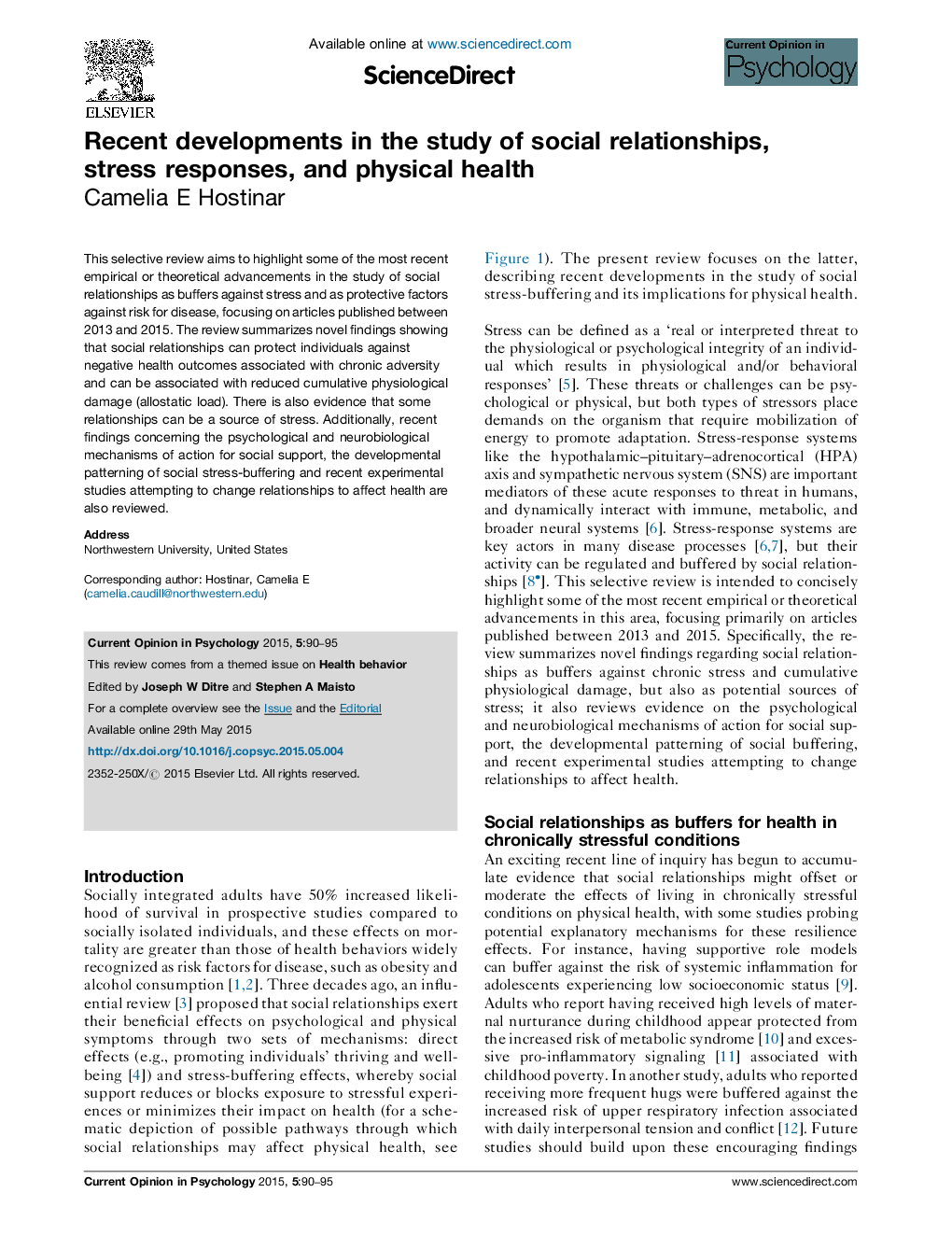| Article ID | Journal | Published Year | Pages | File Type |
|---|---|---|---|---|
| 879478 | Current Opinion in Psychology | 2015 | 6 Pages |
•Supportive relationships can protect against disease risk associated with adversity.•Social relationships can also be a source of stress and physiological dysregulation.•Psychobiological mechanisms of action for social support are increasingly revealed.•There are developmental changes in the social buffering of stress responses.•Novel interventions that improve relationships might also promote physical health.
This selective review aims to highlight some of the most recent empirical or theoretical advancements in the study of social relationships as buffers against stress and as protective factors against risk for disease, focusing on articles published between 2013 and 2015. The review summarizes novel findings showing that social relationships can protect individuals against negative health outcomes associated with chronic adversity and can be associated with reduced cumulative physiological damage (allostatic load). There is also evidence that some relationships can be a source of stress. Additionally, recent findings concerning the psychological and neurobiological mechanisms of action for social support, the developmental patterning of social stress-buffering and recent experimental studies attempting to change relationships to affect health are also reviewed.
